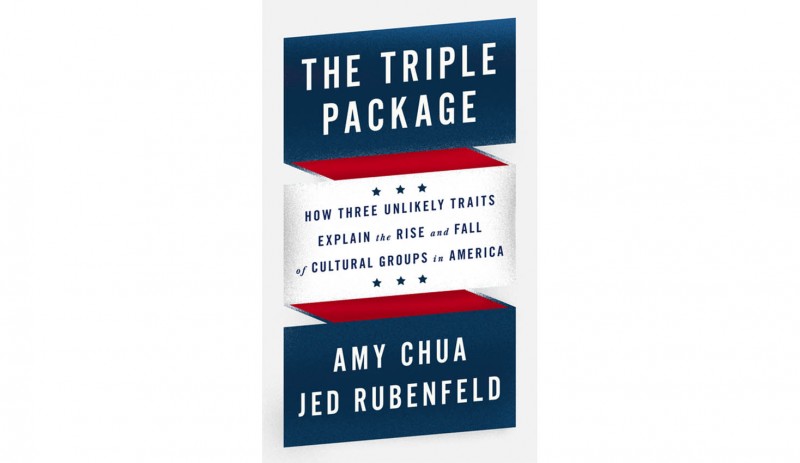The backlash is already beginning, and the book isn’t even out yet.
The Triple Package, the latest incendiary bomb from Tiger Mother Amy Chua and her husband Jed Rubenfeld, doesn’t arrive in bookstores until February 4. But that hasn’t stopped the media from forming opinions about it—mostly negative ones.
Two weeks ago, the Huffington Post sparked an explosive discussion about the book, with the interviewer calling it—sight unseen—“a little crazy.” And yesterday, columnist Kelly Yang of the South China Morning Post said the book was “disturbing” and “frightening.”
However, I found it to be an engaging, if controversial, discussion of the tendency of eight religious and ethnic groups (Jews and Mormons; and immigrants from Cuba, Lebanon, Iran, Nigeria, China, and India) to be more socioeconomically successful than other groups in America. The authors say that this super-sized success is due to three factors, all of which must be present in a delicate tension:
1) A superiority complex.
While it flies in the face of contemporary rhetoric about equality, Chua and Rubenfeld argue—right or wrong—that groups that succeed best in America are those that feel special, set apart, and chosen for greatness.
2) A corresponding insecurity.
Counterintuitively, successful groups are also insecure, with individual members of those groups feeling a keen need to prove themselves. That insecurity may be because the group as a whole is devalued in American society, or it may arise from an individual feeling inadequate within the group (110). Often, both forms of insecurity are at work.
3) Impulse control.
In the book’s least surprising argument, the authors contend that successful groups are ones that routinely emphasize hard work, thrift, and delayed gratification. What successful people have is grit, not high IQ or exceptional self-esteem.
In The Triple Package, Chua and Rubenfeld have identified three animating factors behind the well-publicized success of Mormons in business, and if anything they don’t press their points hard enough.
For example, the chapter on insecurity has almost nothing to say about anti-Mormon prejudice and how it might spur Mormons to prove themselves. Whereas Jews have a long history of violent persecution so well-known it hardly needs to be recounted, and more recent immigrant groups such as Cubans have encountered vicious prejudice in the United States (one Cuban exile arrived in Miami to find a sign that said “no Cubans or dogs”), Mormons, by contrast, get one four-word sentence about their own insecurity: “Mormons were long persecuted.”
That’s it. Later in the book the authors do mention in passing a bit of the prejudice that some Mormons have experienced, but this coverage is superficial and incomplete.
On the authors’ first and second points, I agree that Mormons match the authors’ description of a careful balance between feeling superior (“this is the one true church,” “only LDS temple marriages can be eternal,” etc.) and mistreated (“your holy underwear is weird”).
What’s more, we have the third qualification—impulse control—in spades.
Again, the authors could have developed this more fully. They refer admiringly to the LDS practices of asking teenagers to get up before dawn to attend early-morning seminary and sending college-age Mormons on long, unpaid missions where they are facing rejection and working fourteen-hour days (134-135).
But they don’t discuss the fact that LDS impulse control starts in early childhood. The moment Mormon kids receive a three-slotted “tithing bank” or begin their first fast, they learn that gratification of impulses can wait . . . and that the reward will be all the sweeter later.
Overall, the authors do a good job of demonstrating statistically that Mormons are more socioeconomically successful (with the exception of overall household income, which they attribute to the likelihood in Mormon families that one parent will not be working full-time). They also offer intriguing, if underdeveloped, reasons why Mormons succeed.
But before Mormons start patting ourselves on the back, we should read the important chapter on the shadow side of the Triple Package, both for society (terrible atrocities have been perpetrated throughout history in the name of one group’s self-perceived superiority) and for individuals (Asian American teens have significantly higher rates of depression due to high pressure and low feelings of self-worth).
What’s more, Triple Package success is too narrowly defined as material success—who has the most power, the most Ivy League degrees, or the $2 billion City Creek shopping mall in downtown Salt Lake City.






